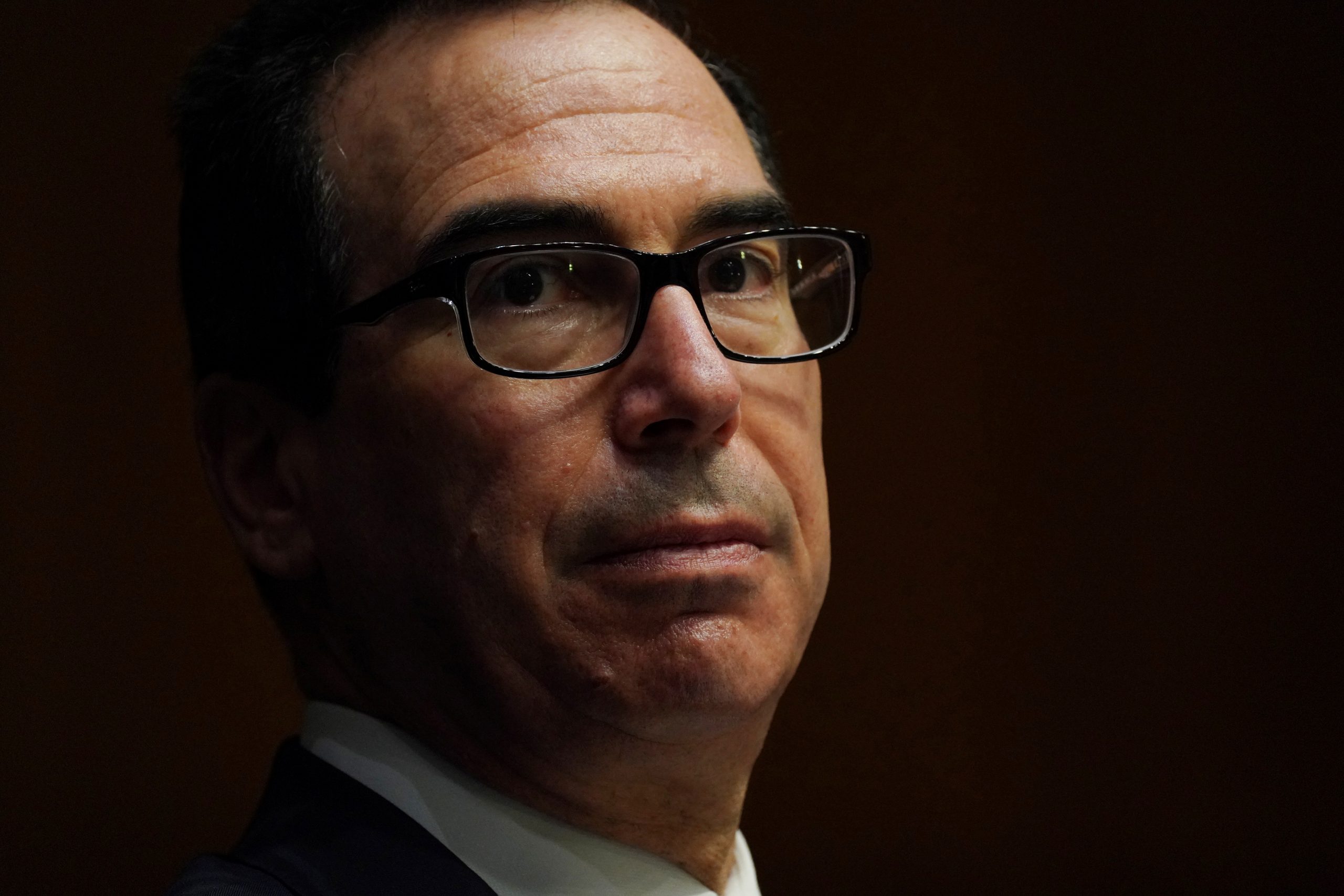Treasury Secretary Steven Mnuchin on Thursday told the Federal Reserve to return money earmarked for pandemic lending to businesses, nonprofits and local governments, ending on Dec. 31 some crisis programs that the central bank views as vital to keeping the economy stable.
“I am requesting that the Federal Reserve return the unused funds to the Treasury,” Mnuchin said in a letter to Fed Chair Jerome Powell, declining to extend programs that allowed the Fed to buy corporate bonds and make loans to small businesses and local governments.
Mnuchin said the move would allow Congress to re-appropriate some $455 billion allocated to Treasury under the CARES Act in the spring, much of which was used to set up a series of Fed lending programs with Treasury’s support.
The surprise announcement sent benchmark U.S. Treasury yields and equity index futures lower. While only a small fraction of the funds were loaned, the Fed and analysts said the programs were symbolically reassuring to credit markets.
The 10-year Treasury note yield <US10YT=RR> slid 2 basis points and was the lowest in 10 days at 0.83%. S&P 500 index emini futures <ESv1> fell 0.7% after they reopened at 6 p.m. ET (2300 GMT) for the overnight trading session.
The decision put the outgoing Trump administration at odds with the central bank, whose actions have helped keep the economy on an even keel during the worst economic downturn in a century.
In a statement, the Fed said it “would prefer that the full suite of emergency facilities established during the coronavirus pandemic continue to serve their important role as a backstop for our still-strained and vulnerable economy.”
Importantly, Mnuchin did allow a 90-day extension to a group of other programs that supply cash to key financial markets, including those for short-term corporate credit.
But Fed officials in recent days have emphasized that the economy is not yet out of the woods, with the pandemic spreading, millions unemployed and important business sectors suffering depression-level downturns.
In his letter to Powell, Mnuchin said that in the “unlikely event” that the lending programs are again needed, the Fed can request the Treasury to re-establish them with funding from the Treasury’s own stability fund or with new money from Congress.
The programs, particularly the “Main Street” and local government landing programs, raised the prospect of trillions of dollars in central bank credit flooding into an economy that had been partially shut down in the spring to curb the economic fallout from the pandemic.
Ultimately they did not get much use.
The Fed had made $5.4 billion in Main Street loans according to data released on Thursday. The Municipal Liquidity Facility had only issued about $1.7 billion in loans out of $500 billion available.
But Fed officials said the programs were an important reminder to businesses and investors that the central bank’s lender of last resort powers, usually limited to financial institutions, had been opened to the entire economy because of the pandemic’s dramatic impact on commerce.
‘INJECTING UNCERTAINTY’
Still, the programs were a step beyond traditional central banking, and some in Congress felt it was time for them to end even with coronavirus infections at record levels and deployment of a vaccine likely months off.
Pat Toomey, a senior Republican senator poised to lead the banking committee, which overseas the Fed, if Republicans hold the Senate, said he applauded the Treasury’s actions.
“These facilities…have successfully achieved their intended purpose,” he said. “With liquidity restored, they should expire, as Congress intended and the law requires, by December 31, 2020.”
Others were not convinced.
“The Fed has been one of the only sources of stability in Washington and removing its latitude to offer support in a shaky recovery is simply nonsensical,” said Isaac Boltansky, director of policy research at Washington-based Compass Point Research & Trading.
“This is a distressing development that injects uncertainty and instability into markets completely unnecessarily. How many times will Washington trip on its shoelaces in response to this crisis?”
(Additional reporting by Jonnelle Marte and Pete Schroeder; Editing by Cynthia Osterman)

























 Continue with Google
Continue with Google